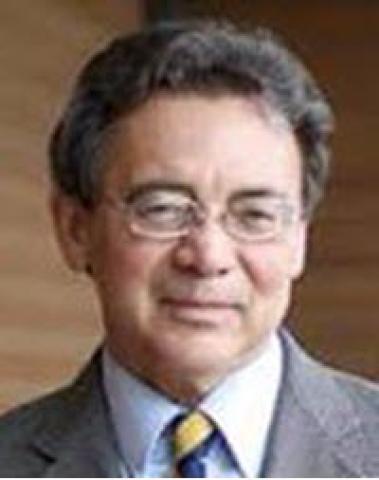Abstract
Excerpted From: Kevin R. Johnson, Professor Rachel Moran: A Foundational Latina/o Civil Rights Scholar, 10 Texas A&M Law Review 749 (Summer, 2023) (56 Footnotes) (Full Document)
 With an illustrious scholarly career, Professor Rachel Moran is a most-deserving Texas A&M University Hagler Fellow. Previously a chaired professor of law and dean of UCLA School of Law, and a chaired professor at the University of California, Berkeley School of Law, she currently is a Distinguished and Chancellor's Professor of Law at the University of California, Irvine School of Law, where she was one of the founding faculty.
With an illustrious scholarly career, Professor Rachel Moran is a most-deserving Texas A&M University Hagler Fellow. Previously a chaired professor of law and dean of UCLA School of Law, and a chaired professor at the University of California, Berkeley School of Law, she currently is a Distinguished and Chancellor's Professor of Law at the University of California, Irvine School of Law, where she was one of the founding faculty.
An influential scholar with an international reputation, Professor Moran has authored foundational scholarship in civil rights, education law and policy, higher education and affirmative action, Latina/o-related law and policy, and legal education. The contributions to this Issue of the Texas A&M Law Review attest to her lasting scholarly impact. Professor Moran also is a leader among scholars, having served as president of the Association of American Law Schools and as the American Bar Foundation's inaugural Neukom Fellows Research Chair in Diversity and Law. Moreover, Professor Moran is a member of the American Law Institute, as well as a fellow of the Civil Rights Project/Proyecto Derechos Civiles.
Professor Moran's extensive and ongoing research on educational access and equity critically analyzes how public schools shape the lives of the nation's most vulnerable students, whether they are children of color, poor, undocumented, or speak a language other than English. Reflecting her deep and enduring professional commitment to Latina/o civil rights, she currently directs the American Bar Foundation's project on “The Future of Latinos in the United States: Law, Opportunity, and Mobility,” which ambitiously explores how law and policy will affect the mobility and opportunity of the nation's large and growing Latino population in immigration, education, economic participation, and civic and political engagement. The project represents a deep, interdisciplinary exploration of Latina/o civil rights, which, as outlined in Part II of this Commentary, have been the focus of Professor Moran's scholarly career. In certain respects, the project nicely brings together many of her scholarly interests.
My comments consider one aspect of Professor Moran's body of scholarship--her work on Latina/o civil rights. Her writings in this area have been nothing less than foundational, path-breaking, and truly visionary. In essence, Professor Moran has no less than inspired a generation of cutting-edge Latina/o civil rights scholarship.
[. . .]
Professor Moran has authored path-breaking scholarship on Latina/o civil rights. Her insights fueled a growing body of critical Latina/o scholarship analyzing the civil rights of Latina/os in U.S. society. Professor Moran's scholarship has left a deep and enduring legacy, one that grows as her scholarship continues.
Dean and Mabie-Apallas Professor of Public Interest Law and Chicana/o Studies, University of California, Davis, School of Law.


